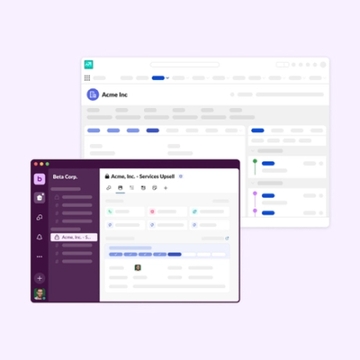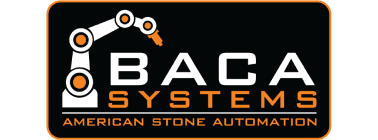Founded in 1952, Credit Union 1 is a financial institution with a mission to lead change, uplift others and value people. It is deeply rooted in the local community and has a strong commitment to serving the financial needs of those who live or work in Alaska, nicknamed the Last Frontier. The credit union has 12 branches (soon to be 13) spread across the state, nearly 100,000 members and over 400 employees, with approximately 10% working from home.
Like many organizations, Credit Union 1 abruptly went remote when the pandemic began. Chief technology officer turned CEO Mark Burgess knew his employees needed a platform to unite team members, no matter where they lived and worked.
Burgess asked himself, “How do I foster communication that allows people to share information and ask questions like they’re sitting next to someone, without actually being next to someone?” And that’s when he found Slack. Burgess chose Slack for its speed of deployment and seamless integrations with key tools like Okta and Zoom without the administrative burden. Slack soon became a platform not just for building company culture but for enabling a successful core conversion process and using automation to boost productivity across the organization.
Facilitating a smooth core conversion process
A core conversion is a significant, complex process that involves migrating a financial institution’s core banking system from one platform to another. This core banking system manages all the most critical functions, including member accounts, transactions, deposits, loans and other financial operations. At Credit Union 1, this platform is connected to 2,700 internal processes, 80 APIs and a dozen apps, so upgrading the platform was no simple feat.
Slack comprehensively streamlined the credit union’s successful core conversion process through project channels and automated workflows. Team members used Slack to coordinate and provide real-time transparency to leadership via an #updates channel where they could easily share templated updates every 30 minutes.
The core conversion team also used an #issues channel to report errors. Members from the IT and product support teams monitored these channels and could quickly collaborate to resolve incidents.
“Everybody knew what was going on, from the member-facing, frontline staff to the CEO, and everything ran smoothly,” Keith Bennett, Credit Union 1’s chief technology officer, explains.
In our final mock core conversion testing, without using Slack for communications, we had support desk wait times of over one hour the entire day. During our live core conversion, using Slack to provide constant communication, those wait times were non-existent.”

“With the real-time updates being pushed out through Slack, we experienced a substantial reduction in calls coming into our team support line.”
Creating better member experiences through automation and real-time data
To set itself apart in a competitive banking market, Credit Union 1 focuses on creating great member experiences. The company uses Slack Workflow Builder to provide better, faster member service.
For example, its team of credit union tellers uses a workflow to send relationship managers leads and referrals as members come into branches and discuss their needs. There’s also a workflow that routes member follow-ups to specialists who can service those requests, such as taking out an auto loan or adding an authorized signer to an account. The workflow prompts team members to input the member’s name, phone number, request type, status and any other key details. Then the team member who picks up the request will know exactly what the member needs so they can offer more timely support.
“Workflows help standardize our communication,” Burgess says. “Imagine we have 150 employees in our branches—if they’re each making member appointments in their own way, it would take forever, and we would miss valuable information. With Workflow Builder, we’re able to automate this process, which has resulted in a 20% increase in time saved.”

“Imagine we have 150 employees in our branches—if they’re each making member appointments in their own way, it would take forever, and we would miss valuable information. With Workflow Builder, we’re able to automate this process, which has resulted in a 20% increase in time saved.”
Slack also enables Credit Union 1 to build stronger member relationships with real-time data. All historical data is stored in Slack channels, making it easy for service team members to search for previous discussions and decisions in channels to speed up resolution times. This data gives them a holistic view so they can provide more personalized service.
Collecting critical alerts and service data in a central Slack channel is especially important, as it lets the team mobilize around time-sensitive requests. Member service and relationship managers can quickly swarm issues by pulling in experts to any channel for faster resolution.
Improving employee onboarding and retention
Slack’s AI-powered search allows new employees to easily find the information they need for member accounts and processes. This in turn speeds up the onboarding process and helps employees start being productive, faster.
Credit Union 1 employees can get more quickly and deeply connected with the company’s mission and values via Slack. Not only can they search through channels but they also have easy access to their leadership team, including Burgess.
“In a hybrid environment, we may not all have the opportunity to go knock on the CEO’s door, but when not in person, Mark really engages on Slack and makes sure that he contributes to the conversation there,” says Jessica Gallagher, the company’s director of corporate communications. “It helps all employees immensely to know we have access to our leadership team and can be heard in that way.”
Slack has also improved retention by enabling leaders to work remotely. Prior to the pandemic, remote employees found it more difficult to move into leadership positions. Now Credit Union 1 can have employees who live in “Colorado versus Alaska and still be able to really connect with their teams and build relationships without being physically present,” says Gallagher. “Long-term, that has an impact on retention because people don’t have to feel like their career development is limited by their location.”

“Slack is irreplaceable for how quickly we can get key information from people.”
Building connection and company culture
Building connections and a positive company culture isn’t easy with employees working at 12 different branch locations across the state and others remotely in different time zones. But Slack channels enable Credit Union 1 employees to find natural moments of engagement.
“We like to celebrate our employees,” Burgess says. “So we’ve got a shout-outs channel where anybody can post praise or compliments for other team members. It’s awesome, and we’re trying to build that camaraderie that you don’t get when you’re just at home without some other kind of medium.”
The credit union also uses a #headlines channel to keep everyone up to date on company news and an #isitdown channel to announce when an IT service is
unavailable. Sending company updates and outages via Slack is an instantaneous way to make sure everyone stays informed of important information. Channels are also searchable, so if an employee misses something while out to lunch or away from the office, they can easily search the channel to find what they’re looking for.
With Slack, Credit Union 1 has also improved inter-branch communications. The credit union has 12 branch locations across the state, each with its own Slack channel. These channels are used for announcing unexpected branch closures or informing other branches of fraud attempts at their branch.
Bennett says, “During business hours, Slack is an integral part of our critical internal communications. Let’s say a branch needs to close due to a big snowstorm, a remote branch is closing during the lunch hour due to staff shortage, or the IT support desk is getting overwhelmed with calls due to a software or network issue—we can get real-time communications out to all employees through our Slack channels.”
Slack channels help form connections between employees that would be much harder over email. For example, the credit union gave everyone a CU1-branded duffle bag this summer and encouraged them to take it on their summer vacations and take pictures with it and then post them in a designated channel. Employees posted all kinds of pictures, from enjoying a day at Six Flags, to bringing a new baby home from the hospital, to heading out hunting or fishing.
Connections like these are invaluable forms of employee bonding. Slack also helps employees reach out to each other more easily about any subject.
“I’ve found that if there’s a small bit of information that I really need, if I email it, I might not hear back for a few days—but if I can DM it through Slack, I get that information back much more quickly while also building collaborative relationships.” Gallagher says.
With Slack as its productivity platform, Credit Union 1 has undergone a digital transformation and is ushering in a new era of excellent member experiences.















